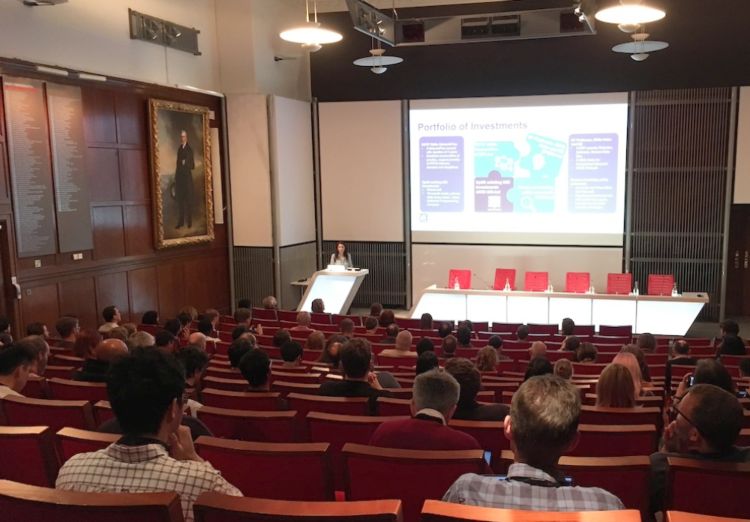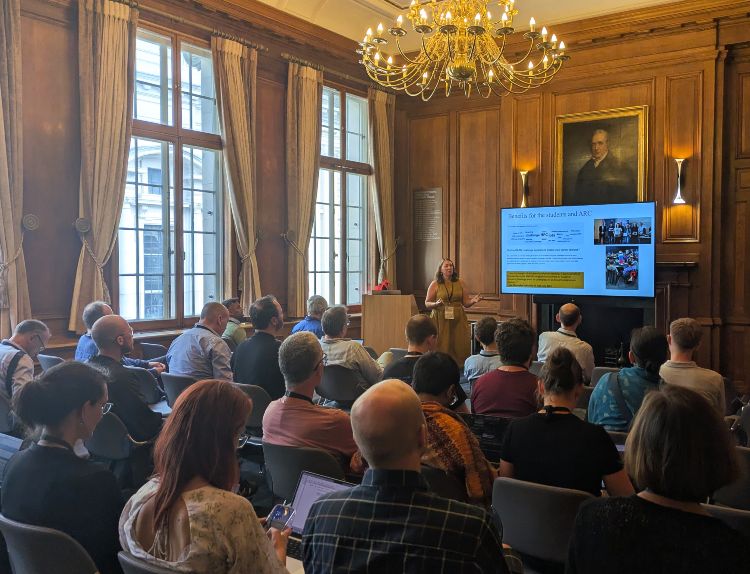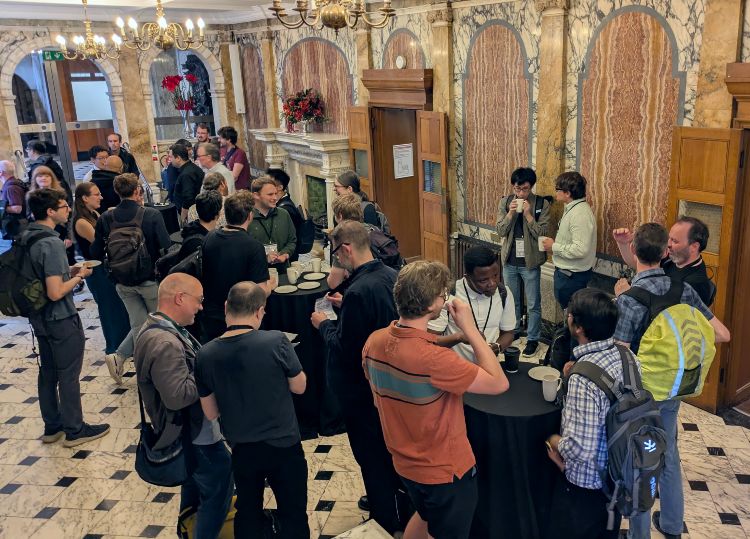The STEP-UP RSLondon Conference 2025
The STEP-UP RSLondon conference 2025 was our biggest regional dRTP gathering yet, and our first to have parallel tracks for research software, research data and research computing infrastructure.
The STEP-UP RSLondon Conference 2025

This blog post is an expanded version of the STEP-UP RSLondon 2025 event report included in the July 2025 edition of the Imperial College London Research Software Community newsletter.
The STEP-UP RSLondon Conference 2025 took place on Monday 7 July 2025. Building on our previous five editions of the conference from 2019 onwards that were run under the RSLondonSouthEast name, this year’s event continued work started last year to develop our community from being largely research software focused to also representing people working in research data and research computing infrastructure-related roles. Updating the name of this year’s event enabled us to recognise the fantastic opportunity that the STEP-UP project is offering us in developing support for a wider group of “digital Research Technical Professionals (dRTPs)”, and in making it possible for us to run the event itself.
Get the event slides and abstracts here
To provide more space for abstract submissions from members of the wider dRTP community, this year’s event was the first to include three parallel tracks for part of the day. One track was run for each of research software, data and computing infrastructure/High Performance Computing (HPC)-focused talks. We also had a number of more general talks covering dRTP community-related topics which were scheduled in our morning plenary session.

This year’s conference was our biggest yet, with over 140 people attending on the day. Following a welcome and introduction from the conference co-chairs, Ilektra Christidi and Jeremy Cohen, we were delighted to welcome Professor Andrea Townsend-Nicholson from UCL who delivered our morning keynote talk on “Bringing the Virtual Human to Life”. Our morning and afternoon sessions included an excellent mix of community-related and technically-focused talks and we really hope that everyone who attended found something of interest in each of the sessions.
Beyond the talks themselves, a personal highlight of the event was the huge buzz of people chatting over refreshments at each of the coffee breaks and during lunch, taking the opportunity to meet collaborators, colleagues and contacts both existing and new.

Bringing the event to a conclusion, our closing keynote speaker, Dr Malvika Sharan of the Alan Turing Institute, delivered a talk on “Shaping Research Culture Through Communities: Lessons from Open Science”. You can find links to Malvika’s slides, and the slides from many of the other talks delivered at the event, on our conference schedule page.
The conference organisers would like to thank UKRI-EPSRC for supporting the event through the STEP-UP project (EP/Y530608/1), and UCL for sponsoring our closing reception which provided a nice opportunity for attendees to conclude discussions from earlier in the day, and to chat with speakers from the day’s talks.
Feedback from attendees was extremely positive and in addition to many people saying how much they enjoyed the event, comments included that the event helped to make attendees “Feel seen and understood…”, and that the conference helped to provide context to the work that dRTPs do. It was also highlighted that the conference helped to identify “…where others are at with similar problems.”. We also received a range of constructive feedback that will help us to further enhance future editions of the conference. This included one comment relating to the perspective that the event treated software, data and research computing infrastructure groups as quite separate entities and that “…it would be good to also explore synergies [between these groups]” and look at how the overlaps between them are managed in organisations where roles already exist. Other feedback indicated interest in more interactive sessions like panel discussions.
The STEP-UP RSLondon conference will be back in 2026. Look out for confirmation of the date for the 2026 event over the coming weeks.
If any of the ideas and initiatives highlighted in this article sound like things you’d like to get involved with, or if you’re already doing relevant or related work and would like to engage with the STEP-UP platform, please do get in touch.